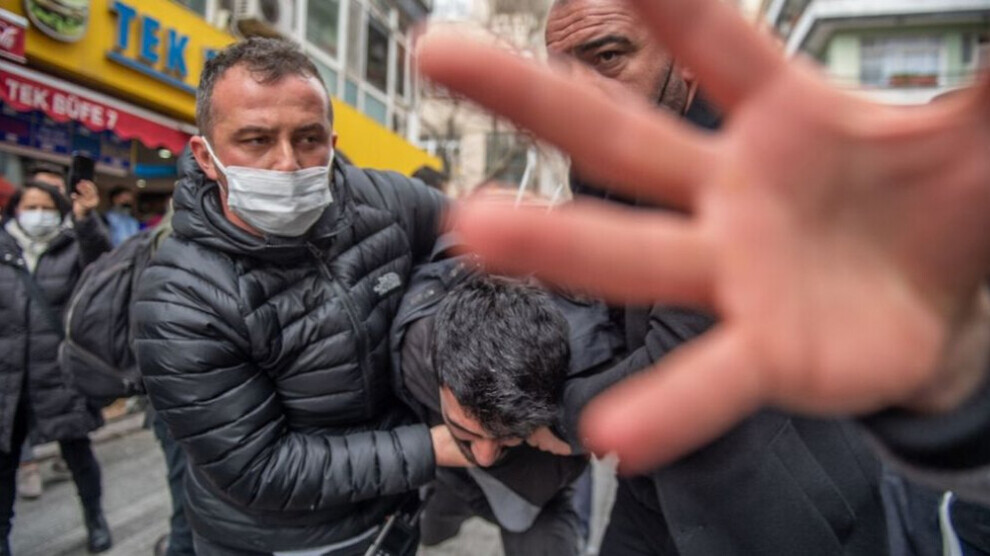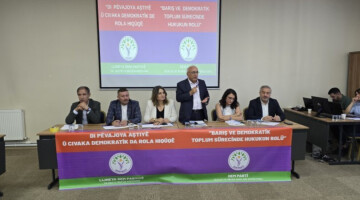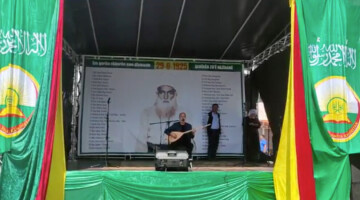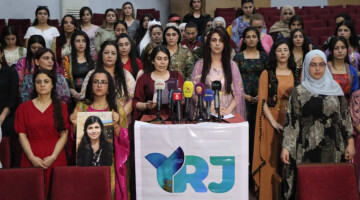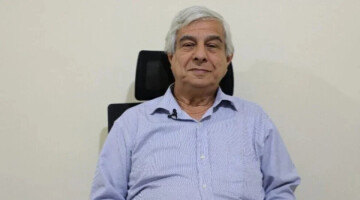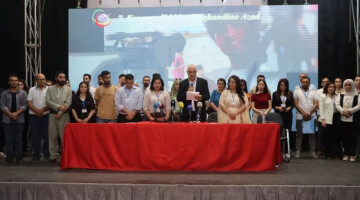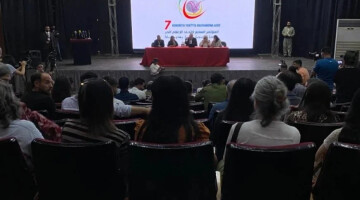The Dicle Firat Journalists' Association (DFG) has published its report on violations of journalists' rights by the Turkish state for the month of September. In the report, the association first recalls the murder of journalist and academic Nagihan Akarsel in Sulaymaniyah on Tuesday. Akarsel was a member of the Academy for Jineology and an editor for the journal of the same name. The Turkish secret service MIT is suspected to be behind the attack.
"This is bad news for all journalists and humanity as a whole. As colleagues who know Akarsel's journalism and her struggle, we condemn this attack. We know that this attack on Akarsel, who has worked as a journalist for many years and researched Jineology, women's science, was aimed at her search for truth. We say again to those who murdered Nagihan Akarsel that no massacre can break the pen of truth. Whether in our newsrooms or on the streets, we make it clear that we will continue their struggle for truth and their journalistic work. Nagihan Akarsel is a martyr of the free press and she will be a light to us in the fight for truth,” said the DFG.
“COURT MURDERED APÊ MUSA ONE MORE TIME”
The DFG also condemned the fact that the trial for the murder of Kurdish intellectual and author Musa Anter on 20 September 1992 is considered time-barred by the Turkish judiciary. "On the 30th anniversary of the murder of our teacher Apê Musa (Musa Anter), the judiciary acquitted his killers. The court, which had not taken any steps to prosecute the perpetrators and the forces behind them in the previous hearing and had deliberately set the trial date for 21 September, a day after the 30th anniversary of the death, stopped the proceedings on the grounds of the statute of limitations. The court, which did not grant the requests to consider the murder as a 'crime against humanity', rewarded the perpetrators with this decision and murdered Musa Anter one more time in collaboration with the sinister forces of the 1990s. We as followers of Apê Musa condemn the verdict and declare that we will continue to pursue this case."
“PRESS WANTED SILENCED BY CENSORSHIP LAW”
The DFG also criticised the "Law for the Prevention of Disinformation", calling it a "censorship law". The legislation, which is intended to de facto silence the press, was introduced to parliament by the AKP/MHP regime on 27 May and includes prison sentences of up to three years for, among other things, "intentionally spreading disinformation and fake news". The DFG stated: "As media workers, we know that this law aims to extend censorship to the whole of society. We warn that this law will exacerbate violations of freedom of the press and freedom of expression, and digital media platforms that provide an alternative in the field of communication will be placed under government control.
We reject this law in the clearest terms and emphasise once again the importance of solidarity and the common struggle for its immediate abolition. This law, which aims to suppress social opposition, freedom of the press, freedom of expression and freedom of thought, is a comprehensive censorship law in all areas. Even before the law is passed, we will witness how this law will manifest itself. While we produce reports on freedom of thought, freedom of expression and freedom of the press every month, the fact that even these reports are being blocked clearly shows the point journalism has reached or been brought to in Turkey. We call on everyone to unite to fight for the withdrawal of the draft law, the first two articles of which have already been adopted in the General Assembly of Parliament."
IMPRISONED JOURNALISTS
In the report, the DFG also referred to the situation of the imprisoned journalists, pointing in particular to the prisoners' warning hunger strike: "Safiye Alağaş, Neşe Toprak, Remziye Temel and Elif Üngür, who are among the 16 journalists arrested on 8 June during an operation in Diyarbakır, went on a hunger strike to protest against surveillance, body search and the prevention of treatment of sick prisoners. They went on hunger strike to protest against surveillance, strip search, prevention of treatment of sick prisoners and restriction of activities in Diyarbakır Women's Prison. The journalists, together with other prisoners, went on a five-day hunger strike 'as a warning against increasing rights violations'."
The DFG also commemorated Gurbetelli Ersöz, whose anniversary of death on 7 October 1997 is marked in Kurdistan as Kurdish Women Journalists Day. The studied chemist and journalist was editor-in-chief of the pro-Kurdish newspaper Özgür Gündem. After being imprisoned and tortured in Turkey, she joined the guerrillas in 1994. In 1997, she was martyred in the "southern war".
ARRESTS, DETENTIONS AND INTERNET BANS
Regarding the situation of journalists in Turkey, the DFG report stated that in September, five journalists were arrested, two were detained, 12 were ill-treated, seven were threatened, four were investigated, seven were charged, 15 were prevented from reporting, and six suffered other rights violations in prison. In addition, nine journalists were sentenced to years in prison, 72 are on trial and 72 remain in prison. The Broadcasting Authority imposed fines and broadcast bans on three broadcasters, blocked five programmes, shut down three websites, blocked access to 137 news items and banned the content of 18 social media accounts.

